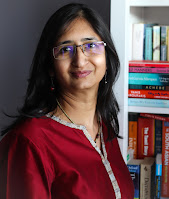While I begin writing this, the war of terror by a nuclear power over its neighbour looms large in my mind. Like me, many of us I’m sure are either ignoring the news or obsessively consuming it. (If you want to help, here are some ways.)
But are children aware of the war? Are they talking about it? Are the grown-ups having a meaningful conversation with them about it?
I was in a school recently, talking about climate crisis (related to my books) and the students offered up war as one of the things destroying the planet. It’s on their minds. They are hearing the news. They are listening to the grown-ups discuss the topics. They might even be refugees of a previous war afraid of this new one.
That made me wondering, how do we talk about war (and peace) to children? How do we explain why one big bully attacks another? How do we explain displacement, refugees and bombs to the youngest of our readers?
Perhaps we already do. Perhaps we don't continue to do it when they grow up.
From the time children go to nursery to socialise with other children, we teach them to take turns, to say please and thank you, to help each other, respecting a No, not grabbing and to share.
How are these different to international rules of playing together nicely in the nuclear sand-pit? We often forget that these rules had never changed from the nursery to the United Nations.
• We take turns to be leaders at the United Nations.
• We help each other albeit in randomly unfair ways.
• We must accept and move on when someone says No, to re-joining an empire
• We must not at any time grab what’s not ours
• We must share our goodies, our vaccines, our expertise with other nations.
The nursery is not perfect. There are tantrums, fights, throw-downs and toy-grabs. The children are still learning these skills for the first time and their brains are still developing. But if we do not show them how to play nice with others at this age, if we do not build in the values of respecting every life equally now, we will be in a cycle of war that will destroy the planet in drastic ways.
To be honest, United Nations is not perfect either. Neither is the world order. Perfection is a dream. We have an imperfect world and world order and however imperfect, we hope peace and humanity wins over greed and ego.
In my opinion, picture-books for younger and older children, have the power to start conversations about such difficult topics. Books can help showcase the people who are displaced, the children who are traumatised and the everyday life that is affected when someone far away decides to act on their greed and ego. They also remind us of the good that exists amidst the chaos.
• The courage and bravery of those who defend their right against the war.
• The kindness of strangers and neighbours.
• The lessons we learn and pass on to the next generation.
Conversely, picture books about sharing, about not biting your friend because they won’t give up their toy or taking turns at the slide without pushing each other out of the way are also important. These stories are the foundations on which our values are built.
The picture book listener has a fertile mind. They laugh at weird sounds, they love repetition, they love snuggly animals. But they are also taking in the underlying thread without the grown-up reader having to elaborate much. If not, the next day at the nursery or school, eventually the child can correlate to the story to what they are saying.
Often they see it in others first. “Tommy didn’t share today.”
“It was my turn but Lucy pushed me down.”
“I didn’t want to give my train but Arun grabbed it anyway.”
Then they will see it in themselves. Then it turns into empathy. It turns into a life-long value they will hopefully retain and turn into generous and kind citizens and leaders.
So, there is a place for both types of stories – the ones that talk about the fundamentals of how we aspire to be and the ones that talk about the immediate plight of the people affected by war.
Which one will you write?
Here are more books Love My Books have put together that talks about the perils of war.
http://www.lovemybooks.co.uk/top10-children-in-conflict
Here are some books that talk about sharing. There are plenty more about not being rude, taking turns and being kind.
https://anitacleare.co.uk/books-to-teach-children-social-skills/
Can you recommend other books that directly or indirectly talk about peace or the futility or the cost of war or simply those universal values of love, sharing and being kind? Share with us in the comments.
Chitra Soundar is an internationally published, award-winning author and storyteller, who is inspired by mythology, culture and folktales from across the world. She believes every story needs to be celebrated and there is a story behind every celebration.
Her latest picture books are Holi Hai! And We All Celebrate. Find out more at http://www.chitrasoundar.com/ and follow her on twitter here and Instagram here.









Thank you for this important post, Chitra
ReplyDelete